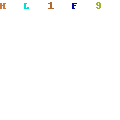
Toothache Caused By Sinuses And How To Treat It
Sinus Toothaches
Contents
Sinus toothache can be incredibly uncomfortable; if left untreated, the discomfort can turn into a full-blown infection. While these infections are not always serious, they require treatment to reduce pain and discomfort as quickly as possible. Fortunately, one can take a few simple steps at home to help alleviate sinus toothache symptoms and prevent further complications.
What Are Sinuses?
Sinuses are the cavities filled with air in the skull. There are several sinuses, but the pair associated with toothaches is located behind the upper jaw’s cheekbones. The tips of the roots of the upper molar teeth are very close to the sinus cavity, and this proximity is why sinusitis is often mistaken for a toothache. When the sinuses become inflamed, this is called sinusitis. Fluid also builds up in the sinuses, which can increase pressure and cause pain.
Causes of Sinus Toothache
Sinus toothache is an uncomfortable condition that various underlying factors can cause. It occurs when the sinus cavity near the upper teeth becomes inflamed or infected. This inflammation and infection can lead to pain in the teeth and other nearby face areas. Common causes of sinus toothache include allergies, colds, flu, sinusitis infections, and dental problems like gum disease.
The most common cause of sinus toothache is inflammation due to allergies or a cold virus. Pollen, dust mites, pet dander, and other allergens can irritate the mucous membranes within the nose and throat, inflaming adjacent tissue in the sinuses near your teeth and causing discomfort.
What Are Some Signs Of A Sinus Toothache?
- Pain in a number of the upper teeth. A toothache caused by sinusitis is often brutal to pinpoint to a specific tooth as several teeth can feel sore.
- If you have or recently had a cold, flu, stuffy nose, or a runny nose
- You suffer from allergies
- Headache or earache
- Tender cheeks or a feeling of heaviness in the sinuses
- Sinus pain worsens when you move your head, such as walking, jumping, or nodding your head up and down.
Risk Factors for Sinus Toothache
Sinus toothaches can be debilitating and painful dental problems. An infection causes a sinus toothache in the maxillary sinuses, which are situated behind the cheeks. People who suffer from these types of toothaches may experience severe facial pain, especially when lying down or applying pressure to the cheeks. It is essential to understand what factors can lead to this type of dental issue so that steps can be taken to avoid them.
The most common risk factor for developing a sinus toothache is allergies. Allergies and asthma often irritate the mucous membranes surrounding the maxillary sinuses, leading to inflammation, infection, and pain. Other conditions associated with increased risk include smoking, chronic sinus infections, changes in air pressure due to flying or diving, and physical trauma such as a blow to the face or jaw area.
How To Treat A Sinus Toothache?
The first step to treating a sinus toothache is to identify the cause of the problem. Sinusitis or an infection in the mouth or gums can lead to this discomfort. If you have recently suffered from a cold or flu virus, then it is likely that your sinuses are inflamed due to the virus itself.

A sinus toothache will often go away as the sinuses become less inflamed. However, a persistent sinus infection may require antibiotics to clear it up. Nasal sprays or other medications may also be recommended to help clear up the infection. Always seek the advice of a medical professional before taking medication to treat a sinus infection.
Prevention Tips
Conclusion
A sinus toothache may feel similar to toothaches you’ve had in the past that weren’t related to the sinuses. A visit to your dentist for a checkup and x-rays can rule out any problems with the teeth, such as tooth infections or cavities. A doctor can diagnose sinusitis and treat it with the appropriate medications, such as antibiotics and nasal decongestants.

